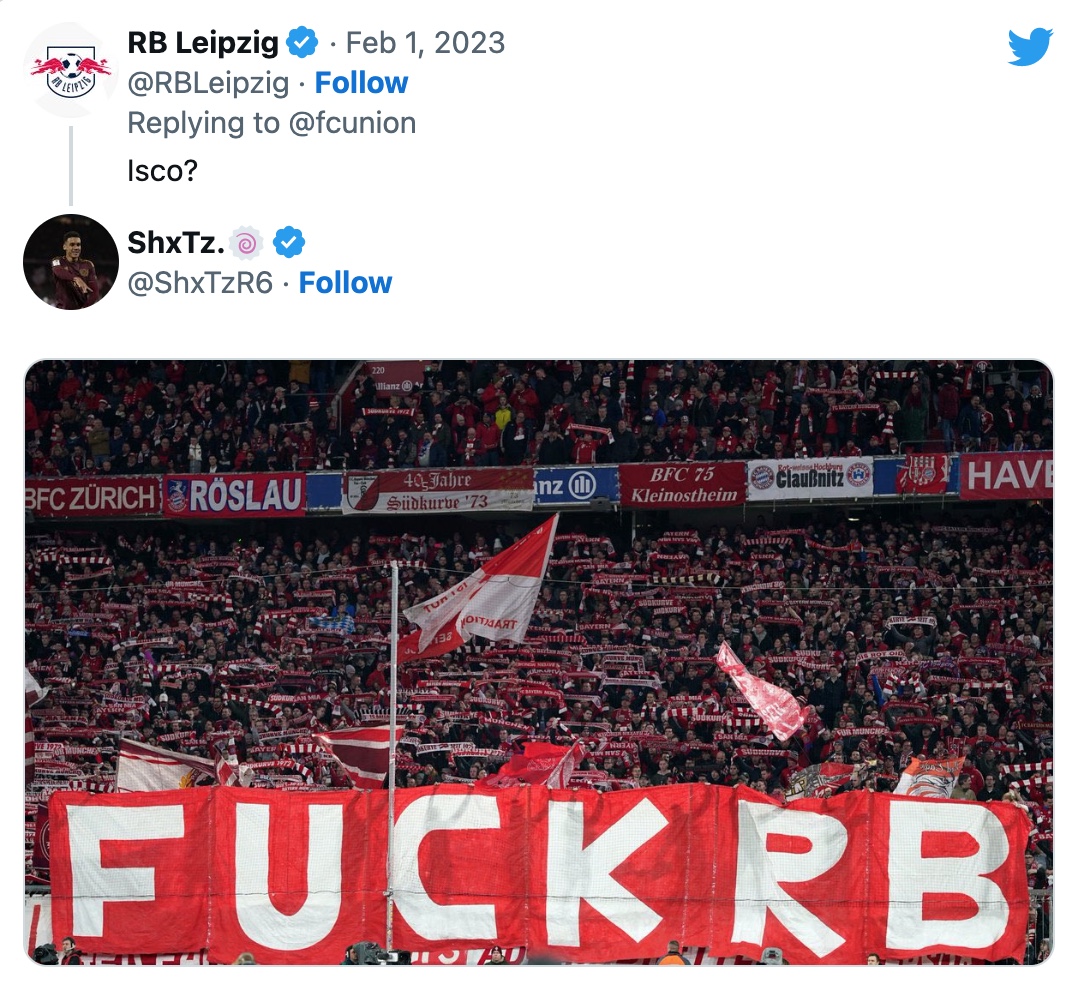The German football scene was recently abuzz with excitement when two of its top clubs, RB Leipzig and Union Berlin, engaged in a heated exchange on social media.
The incident began when Union Berlin attempted to sign one-a-star midfielder Isco, who has been a free agent since his contract termination with Sevilla, but unfortunately, their efforts proved fruitless.
The day after the transfer deadline ended, Union Berlin tweeted a photo of their line-up for the next game, which prompted RB Leipzig to reply with a seemingly sarcastic “Isco?” aimed at highlighting the fact that the Berlin club had missed out on the talented player.
Union Berlin, to their credit, responded with a simple one-word tweet: “Tradition?”
Many saw this as a fantastic comeback, referring to the continuous criticism that RB Leipzig lacks the history and traditions of more established German football teams.
Why are RB Leipzig hated?
It is possible to think of RB Leipzig as an American “expansion team”. The club was founded in 2009 after Red Bull acquired ownership of the German fifth-level team SSV Markranstadt. Red Bull made significant investments in the squad, including changing the name, colours, and logo of the team, leasing the city’s 43,000-seat stadium for 10 years, and constructing a world-class training facility.
The club’s rapid rise to the top of German football has sparked a great deal of anger among many German fans. They view the club as a threat to traditional German football and believe that it represents the negative aspects of modern football, such as millionaire signings and a lack of authenticity.
The German footballing philosophy is built on fan ownership and local roots, which is why the creation of a club like RB Leipzig has been seen by some as an affront to these values. Some people consider RB Leipzig to be an “artificial” club that lacks the authenticity and history of more seasoned clubs because it was founded from money.
This conversation brings to light the conflict and divergent viewpoints that exist between conventional and legacy teams like Union Berlin and newer clubs like RB Leipzig, who have a more contemporary and commercially oriented approach to the game.
The exchange between RB Leipzig and Union Berlin serves as a reminder of the broader concerns about the role of corporate ownership in football and its potential impact on the sport’s traditions and values.
RB Leipzig’s association with energy drink company Red Bull has led to accusations that the club prioritizes commercial interests over the preservation of the history and heritage of the sport.
The hatred for Leipzig is real, as is visible from the countless other German clubs who are replying in support of Union Berlin.
Bought vs Built
A lot of Germans believe that RB Leipzig lacks the rich history and traditions of more established football clubs in Germany and that the club’s relatively recent establishment is at odds with the traditional values of the sport.
The influx of corporate ownership in the Bundesliga, as seen with RB Leipzig, has sparked debates and concerns among fans about its impact on the sport’s traditions and values.
In essence, this is the age-old debate of Bought vs Built.
No one method is necessarily worse than the other, because, at the end of the day, results are the only thing that matter. If Leipzig fans get success, as they have with the DFB Pokal win last year, it’s hard to say that they would care for tradition.
Tradition might not win trophies, but it does bring loyalty. Union fans are starved of success, but they take pride in staying with the team. They might not have won a lot of trophies, but at least they don’t have banners like these plastered against them.




